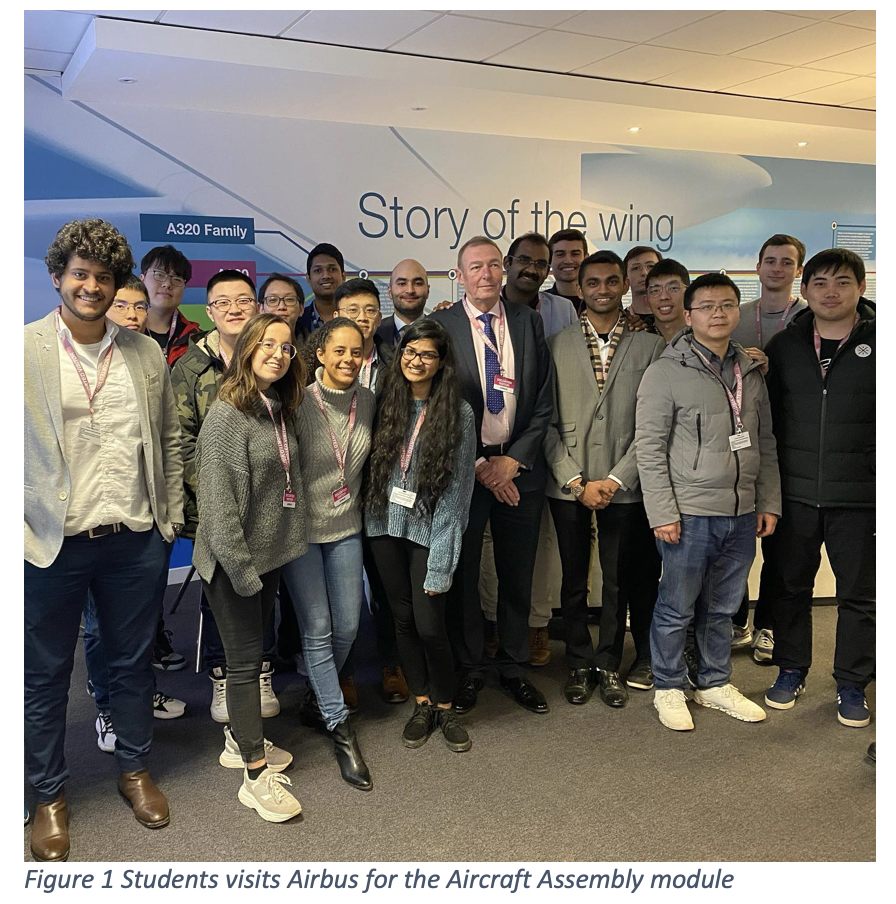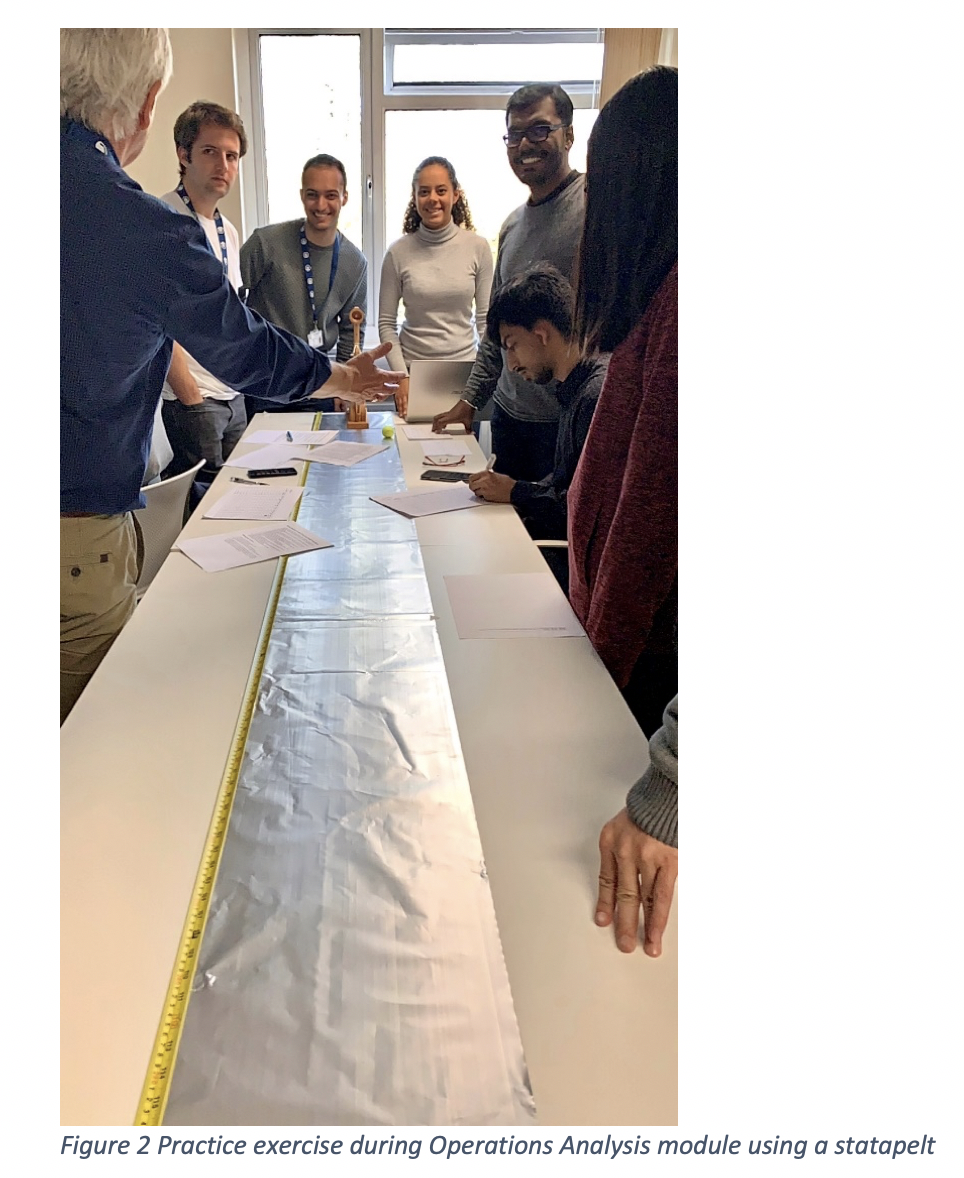Aerospace manufacturing MSc – moving from taught modules to industrial practice
19/02/2020

Students have completed their eight taught modules and getting ready for their group projects. This will be an exciting time of their studies, as they will be asked to work on industry scale projects, sponsored by industry, putting in practice all the things that they learned during the last four months. They will work in groups with students from the other manufacturing MS courses in multidisciplinary projects. Projects focused on manufacturing related problems, from proposing solutions to pharmaceutical companies on how to control the cost of loss quality to proposing productivity improvements to inventory controlling companies. During the next 3 months they will deliver solutions and at the same time improve their “soft” transferable skills such as team working, communications and negotiations skills, presentation skills and project management.
Aerospace Manufacturing MSc in focus
Aerospace manufacturing MSc aims to develop the next generation of aerospace manufacturing engineers and managers who will be able to bring about improvements and changes to the way the aerospace manufacturing business operates. The course was first introduced in 2012 and now has a large number of alumni working for a range of aerospace related companies. It was accredited by RAEs, IMechE and IET back in 2015. For achieving the intended learning outcomes of the course, the course team has put together a number of high quality modules that the students are able to choose from. Five modules are compulsory, and the remaining three can be elected from a group of five allowing the students to “flavour” the course more to their aspirations.
Their studies start with “Operations Management” module where they focus on capacity, scheduling, inventory and quality management. They then can decide between materials processing related modules (such as “Additive and subtractive manufacturing processes”, “High performance composites”, “Advanced welding processes”, etc.) or advanced operations related modules (such as operations analysis).
They cover topics related to the core of manufacturing operations, such as the “supply chain management” principles, the “manufacturing strategy” decisions and specialised topics related to aerospace manufacturing sector such as “Aircraft assembly” processes. Taught modules are delivered at high intensity, with each module taught over a single week.

At the end of their taught modules, they work on a group project for three months, and then they work for another four months on their individual research project.
The Aerospace Manufacturing MSc cohort typically consists of a mix of students from Europe and overseas, with different cultures and experiences which adds another dimension to academic studies. Throughout the year, the students support each other both within their own MSc and across the MSc courses where modules are shared.
Opportunities to engage with industry
On campus there are further opportunities for students to engage with new ideas and future strategies for manufacturing. Some of the following events held at Cranfield University are examples of this.
Manufacturing 2075 is held every December focusing on how manufacturing will look in more than 50 years from now. The National Manufacturing Debate takes place every May, where key UK manufacturing stakeholders get together to discuss the nation’s manufacturing strategy.
Students also have the chance to present their own ideas on global manufacturing challenges through a Student Think Tank event that is organised every year and streamed online.
For more information or to apply for this MSc, please visit the Cranfield website.
Categories & Tags:
Leave a comment on this post:
You might also like…
Keren Tuv: My Cranfield experience studying Renewable Energy
Hello, my name is Keren, I am from London, UK, and I am studying Renewable Energy MSc. My journey to discovering Cranfield University began when I first decided to return to academia to pursue ...
3D Metal Manufacturing in space: A look into the future
David Rico Sierra, Research Fellow in Additive Manufacturing, was recently involved in an exciting project to manufacture parts using 3D printers in space. Here he reflects on his time working with Airbus in Toulouse… ...
A Legacy of Courage: From India to Britain, Three Generations Find Their Home
My story begins with my grandfather, who plucked up the courage to travel aboard at the age of 22 and start a new life in the UK. I don’t think he would have thought that ...
Cranfield to JLR: mastering mechatronics for a dream career
My name is Jerin Tom, and in 2023 I graduated from Cranfield with an MSc in Automotive Mechatronics. Originally from India, I've always been fascinated by the world of automobiles. Why Cranfield and the ...
Bringing the vision of advanced air mobility closer to reality
Experts at Cranfield University led by Professor Antonios Tsourdos, Head of the Autonomous and Cyber-Physical Systems Centre, are part of the Air Mobility Ecosystem Consortium (AMEC), which aims to demonstrate the commercial and operational ...
Using grey literature in your research: A short guide
As you research and write your thesis, you might come across, or be looking for, ‘grey literature’. This is quite simply material that is either unpublished, or published but not in a commercial form. Types ...






